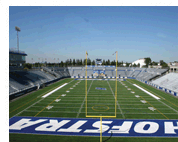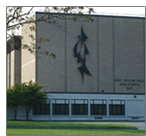Will You Forgive, Or Be Forgiven?May 16, 2013Posted by james
There seems to be plenty of mea culpa along with requests for forgiveness these days in the sports world.
First, it was Tiger Woods. Then, Michael Vick and this was followed by the Penn State matter. More recently, it has been Lance Armstrong and Rutgers basketball coach Mike Rice. Between each of these incidents, there have been countless other athletes and coaches with far less star power but with the same need to request forgiveness for actions on and off the field.
These acts of contrition seem much more prominent than ever before. Could it be that instant and constant news coverage is pushing more of these episodes into the public eye?
Armstrong’s redemption might be elusive. He may have waited too long to reveal the truth. He cheated for years. He denied using performing enhancing drugs. He was adamant about his innocence, and he damaged the reputations of others who challenged him.
Working in his favor to reduce his public exile are his work to fight cancer, that he was just one of many elite cyclists who concealed doping and that he didn’t physically or financially injure another person (though he did take money for charity under false pretenses). Also working to his advantage are the many Americans who are involved in the drug culture and will not be critical of him. They include casual users, body builders on steroids, truckers on uppers and club hoppers on cocaine.
None of us are immune to personal or business embarrassments that we either create or have thrust upon us through our associations with family, employees, business partners, or clients. Luckily, for most of us, these failings will not make the news cycle. But, whether or not a personal or professional blunder grabs headlines, all of us must be prepared with a plan to address any slip-up with co-workers, business associates, clients, family and the community in which we live and work.
My recommendation is to own up quickly to any mistake. Be sincere with an apology. Engage in conversation with everyone who was affected or disappointed by your action. Show them that you have learned the error of your ways, and vow not to walk this same path again. Finally, do your penance and make the self-imposed punishment fit the crime.
If handled correctly, eventually you will redeem yourself. If you were a victim of another person’s poor judgment, only you can decide if the response was sincere. If it is, extend your hand in friendship and to show support.
Jim









